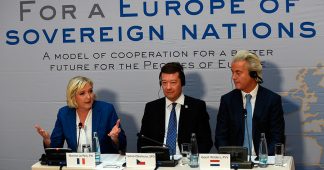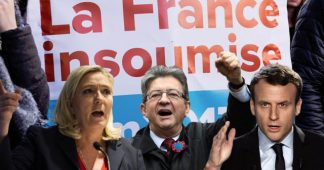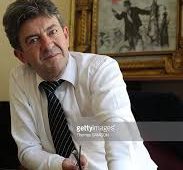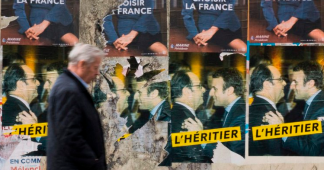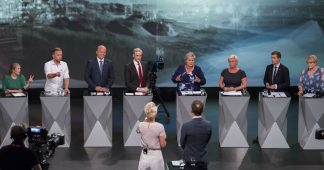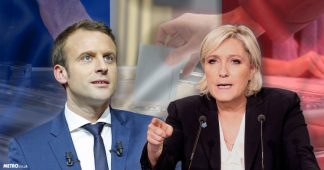Results of 2017 and Prognosis for 2018: Europe
The populist moment: 2017
The European political space went through global changes in 2017. Parties that were marginalised by the ruling elites and the system of the fourth estate (called populist by the liberal media) have started to acquire solid political weight.
This has manifested especially strongly in France (the presidential elections), Austria, and Germany (parliamentary elections). At the beginning of the year, political scientists expected a changing of the European political elites and called this the ‘Trump effect’ in West-European countries (the coming to power of populist leaders in the Netherlands, France, and Germany). However, after the neoconservative turn (or the exposure of the fundamental ideological matrix of the US president) the ‘Trump effect’ formula does not seem fully correct to us.
A more fitting term for the political movement in Europa is the ‘populist moment’. The term itself was developed by the Belgian political philosopher Chantal Mouffe and describes a situation in which popular masses (the oppressed working class of the socialists) begin to resist the elite dictatorship. The moment of the transformation of a popular mutiny into political will is called the populist moment.
The French presidential elections became a demonstrative manifestation of the populist moment. In the second round two candidates represented two political agendas: patriotism and realism in international relations in the person of Marine le Pen and globalism and liberalism in international relations in the person of Macron.
Marine le Pen managed to reach the second round, leaving the system right-wing politician Fillion (fairly pro-Russian in his foreign programme) and the leftist opposition politician Melanchon behind. The Le Pen-Macron confrontation literally opened a new chapter of French political history. This is because of the following fact: both le Pen and Macron refused to position themselves in the classic left/right model and each of them formed a new, unique pole: Le Pen came to represent the people (her campaign slogan was au nom du people = in the name of the people), while Macron, having declared to be neither of the right nor the left, became a ‘nominee’ of the globalist lobby, a representative of the ultraliberal elites and ideology (in the style of his patron Jacques Attali or the late Pierre Bergé, who both came out in favour of the rejection of identity (especially European identity) and the transition to a nomadic society and space of atomistic individuals).

As the result of an information campaign that was unleashed against le Pen by the globalist lobby and many calls by leading liberal political activists (from socialists to republicans) not to vote for her, Macron became president of France. It is interesting that the character of his victory can be called nihilist: many voted for him to not let the ‘radical extremist’ (as she has been called by the media) Marine le Pen get into power. Another important fact for us is that le Pen’s political program included right-wing political values (anti-immigration policy, the fight against terrorism, the ‘France first’ principle), but also left-wing economic ones (social justice, steps away from the right-wing capitalism of Jean-Marie le Pen). After the defeat in the presidential elections, arguments and internal discord broke out in the party about its future political line and strategy. This substantially weakened the party in the June 2017 parliamentary elections (according to the results of the second round, the Front National only received 8 places in the French National Assembly, while Macron’s ‘Republic, Forward!’ movement received 306). It is important to note, that leftist parties have also seen their positions weaken: according to the parliamentary elections, the left (socialists plus the radical leftist party) received 45 places. Right-centrist parties (republicans, the democratic union, independents plus the rest of the right) received around 350 places.
Among the reasons for the rise of populist forces, we can name Trump’s accession to power and the possible weakening of globalist domination in the global political space.
As has been noted before, the populist moment was also expected in the parliamentary elections in the Netherlands (15th of March 2017): Geert Wilders’ Freedom Party had all chances to take the first positions in the Dutch political space. However, the ‘Trump effect’ failed, and the leader of the Freedom Part was ‘outplayed’ by Mark Rutte. The People’s Party for Freedom and Democracy received 32 seats in parliament (in 2012 it had received 41). Wilder’s party received 20 mandates in parliament (in contrast to 15 places in the last elections). In order to thwart Wilders’ victory, the prime minister began to create alliances with other parties sometime before the elections to block a Freedom Party victory.

The main thesis of Geert Wilders’ election program was the necessity of conducting a harsh anti-migration policy in the Netherlands (up to and including introducing a ban on immigration from Muslim countries). It is interesting, that part of Rutte’s electoral program was taken from that of Wilders. The liberal-democrat and EU apologist Rutte added criticism of migration to his election programme. Under the auspices of his election campaign, the prime minister even said, that “migrants should either act normally, or go away.” In the Netherlands, Rutte is now being called a ‘political chameleon’ because of the total change in his political programme.
The Dutch elections also showed the fragility of the popularity of leftist parties. Their indicators are at an extremely low level. Wilders called the election results positive. “Our influence is enormous. Our patriotic spring is only beginning,” – said the politician.
A substantial movement in the political space took place in Germany. There, the young ‘Alternative für Deutschland’ party took the third place in the parliamentary elections of the 24th of September, having received 94 (out of 709) places in the Bundestag, while the positions of both Merkel and Schultz were significantly weakened. The party ‘Alternative für Deutschland’ is against EU migration policy and the party’s deputies hold fast to right-conservative traditions and are highly critical of Merkel’s globalist rhetoric. In addition, the party is the only one in Germany calling for the cancellation of sanctions against the Russian Federation, calling them a threat to the German economy.

It is also interesting to note, that there is no new government in Germany and the chancellor is acting according to her old mandate. In November, after nearly two months of negotiations, it has become clear that Merkel hasn’t managed to create a majority coalition. This year, the Christian-Democratic alliance has shown its worst results since… 1949!
Thus, the German government is now in a fairly tricky situation: the lack of a ruling coalition potentially means new elections. Will Merkel agree to them, when her position is weaker than ever before because of the results of her clueless migration policy? According to the last data of a YouGov poll, 47% of those questioned want Merkel to leave her post (before the next national elections in 2021).
The populist moment also hit neighbouring Austria: the Austrian Freedom Party took the third place with 51 seats in the parliamentary elections of the 15th of October. In comparison, the Social-Democratic Party received 50 seats.
The movement of the whole political space in the direction of right-wing conservatism is also interesting: the Austrian People’s Party led by minister of foreign affairs Sebastian Kurz has taken first place after it de facto copied the program of the AFP. Kurz, who set himself apart from the rest with a harsh anti-immigration program and a critical view of the EU, became the youngest head of government in Europe. According to Kurz, the introduction of refugee quotas is not an ‘answer’ to the migration crisis, but an erroneous and ill-considered decision. The most unexpected event of the year in Austrian politics has been the creation of a coalition of Kurz’s party with the ‘Freedom Party’. Heinz-Cristian Strache has become vice-chancellor and received the portfolio of the minister of sports, his fellow party members have taken important posts (the ministry of internal affairs was taken by general secretary of the party Herbert Kickl and the post of defence minister by Mario Kunasek). The Austrian foreign ministry has been taken over by Karin Kneissl, a specialist on Middle Eastern geopolitics (representatives of the Freedom Party had put her up for election, but she isn’t a member of any party herself). It is interesting, that Kneissl hold a critical position with regards to the EU and has more than once criticised Angela Merkel’s political line; also, her first foreign visits will be to Visegrad-group countries. According to the publication Kurier, the minister of foreign affairs will make her first official visit in 2018 to Bratislava, the capital of Slovakia.
The Kurz-Strache alliance has definitely caused unhappiness among liberal politicians and EU apologists. In neighbouring Germany, the deputy chairman of the SPD to the Bundestag, Achim Post, declared in an interview for Die Welt that a new Austria-Hungary had appeared. “With chancellor Kurz and deputy Strache and with the firebrand Orban, Austria is waltzing to the right. Goodbye, happy Austria!”
The ‘populist turn’ could take place in Italy in 2018. Parliamentary elections will be held on the 4th of March 2018. On the 28th of December, Italy’s president signed a bill about the dissolution of parliament. According to popular opinion polls, the ‘Five Star’ movement might take first place. The position of the movement in relation to the EU is extremely negative: the leader of the group, Beppe Grillo, has declared several times that Italy should leave the Eurozone. The right-conservative party ‘Lega del Nord’, which might enter into a coalition with the party Forza Italia (which is supported by Berlusconi), also has fairly good chances of positive results. However, at the current moment in time a situation of neither party receiving a majority in parliament is likely, which means the beginning of long and fairly complex talks about the creation of a coalition. The publication ‘Financial Times’ calls these elections a serious ‘test’ for Italy: the victor will have a hard time forming a government, which will be a reason for political and economic instability.
In 2017, Great Britain launched the Brexit process. On the 2nd of February 2017 the government published a ‘White Book’ in which the plan of exit from the EU is described: it describes the strategy for leaving the EU and cooperating with the EU on the areas of politics, economics, and immigration. Great Britain will finally leave the EU on the 29th of March 2019. In 2018 talks about a ‘transition period’ of cooperation between the EU and Britain will start: at the end of May 2018, the acceptance of provisions that will form the basis of a new trade agreement is expected at the EU summit. The difficulties with Brexit are also related to the fact, that Brussel is demanding large payments for Britain to leave the EU: the price of ‘exit’ has risen to nearly 100 billion euros (London has agreed on half).

The Tories have noticeably weakened their earlier result in the early elections. The elections themselves were initiated by May to strengthen the position of her party in parliament; however, they have birthed a somewhat opposite effect. The poorly thought-out and unpopular promises that concern the work of social services and education made by the conservatives in their election manifest are the reason for this phenomenon. At the same time, Labour has included promises of free higher education into their electoral programme, which couldn’t do anything but bribe the younger electorate. The result of the elections was the loss of seats in parliament (from 330 to 318 seats) and the loss of the parliamentary majority (for which it is necessary to have 326 seats) by the conservatives. Some expected May’s resignation. Her positions have also become fragile because of terror attacks that resulted in the loss of 35 lives and wounded 300 others. Labour received 26 seats in parliament. The Scottish National Party took third place (35 seats). Such a ‘hung parliament’ has forced the Tories to create a coalition with the Northern Irish Democratic Unionist Party (their 10 seats gave the conservatives a parliamentary majority). A change in the Tory leadership is also on the table (Devis, Hammond, and Johnson are named as potential successors).
The Atlanticist revanche in Eastern Europe
Despite the large-scale crisis of the EU leadership, the governments of several Eastern European countries are working towards joining the European Union. The year 2018 will be decisive for Albania. From 2014 onwards, the country has had candidate status for accession to the EU. The presentation of a new strategy for European integration on the Balkans is expected to be presented by the EU commission in February. In 2017, the Socialist Party of prime minister Edi Rama, which is orientated towards EU-integration, has managed to hold on to victory. The elections took place in tense conditions: during three months the democrats held protest actions and boycotts against the current socialist government, which they accuse of corruption. The conflict between socialists and democrats was resolved after interference from the head of the US state department and special EU envoys. A compromise was the result: the democrats received posts in the management of regional election committees and also took 6 positions in the cabinet.
In 2017 Montenegro became the 29th member of NATO. This was preceded by months of mass protests from the population. The strengthening of the alliance on the Balkans is an extremely negative process for Russia. Montenegro’s prime minister Duško Marković noted, that “European integration is Montenegro’s main priority”. Accession to the EU, according to the prime minister, can take place in the next 4-5 years.
According to Juncker’s prognosis, Serbia will also join the EU before 2025 along with Montenegro. The 2017 presidential elections in Serbia, which were won by Aleksandr Vučić, has also become an ‘Atlanticist revanche’ in Eastern Europe. Vučić has set out on the road towards European integration and rapprochement with NATO. It is interesting that his friend and business partner is Milo Đukanović, the former prime minister of Montenegro, who has actively worked towards Montenegro entering NATO against the will of the people. It is telling, that Vučić has made the public lesbian Anna Brnabić, who has relations with Western foundations, prime minister of Serbia.
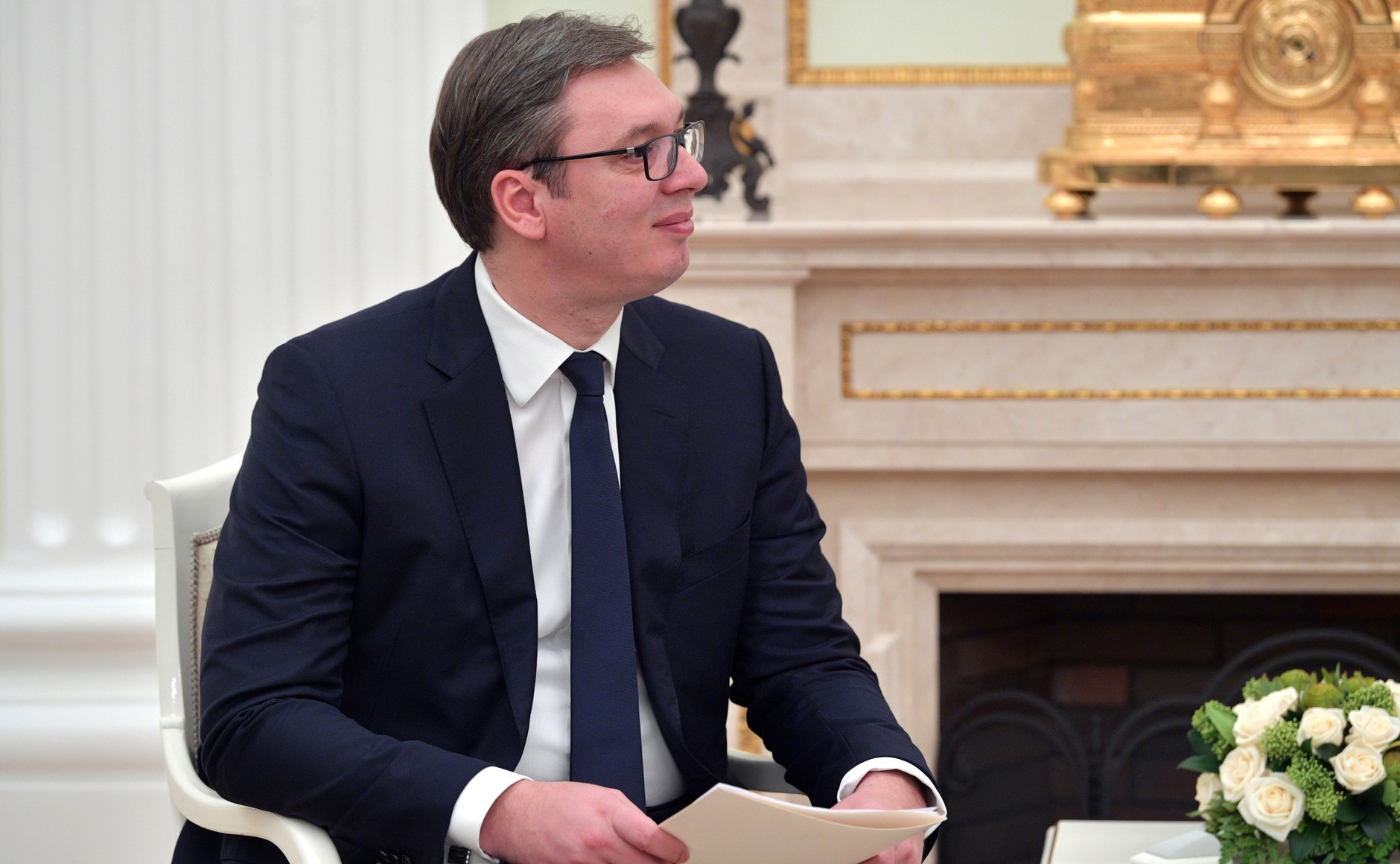
At the same time, Vučić continues to flirt with China, which he is continuing to interest in projects in Serbia, as well as with Moscow. In 2017, Russia delivered 6 MiG-29 fighter jets to Serbia. The delivery of 60 armoured vehicles is planned for next year.
In the unrecognised republic of Kosovo parliamentary elections were held in September 2017. As a result, a war criminal sought by Serbia, former commander of the Kosovo Liberation Army Ramush Haradinaj, has become prime minister. Although Haradinaj is the worst figure for negotiations, it is highly likely that Belgrade will make further admissions of sovereignty in 2018.
In Bulgaria, the pro-European party GERB (‘Citizens for the European Development of Bulgaria’) party won the elections. Second place was taken by the socialist party, which is oriented towards cooperation with Russia.
In May 2017, a pro-Western government under the leadership of Zoran Zaev’s social-democrats was formed in Macedonia after the 2017 parliamentary elections. Although his party came second and the first place was taken by the patriots of Nikola Gruevski’s VMRO-DPBNE (‘Internal Macedonian Revolutionary Organisation – Democratic Party for Macedonian National Unity’) coalition, Zaev formed a coalition with the Albanian DUI (‘Democratic Union for Integration’) party and in this way received the post of prime minister.
Thus ends the Macedonian crisis of nearly two years, during which the pro-Western opposition conducted mass protest actions with the goal of overthrowing the disagreeable government under threat of a plan to run a branch of ‘Turkish Stream’ from Greece through Macedonia to Serbia.
Zaev declared a course of the country joining NATO and started discussions with Greece with this goal in mind. The point is, that Athens is blocking Macedonia’s accession to the organisation, as Greece thinks that the name of the country (which doubles the name of a neighbouring Greek province) should be changed. Not one Macedonian leader before Zaev agreed with these claims. However, the new prime minister agreed to hold negotiations on this question and declared that he is ready to change the country’s name. One of the options is ‘Central-Balkan Republic’.
It is fully possible, that the Macedonian leadership will try to change the country’s name in 2018 which might, in turn, cause protest actions and a destabilisation of the situation. Another destabilising factor is the pressure from neighbouring Bulgaria. There are plans to acknowledge a Macedonian Church, which independently broke off from the Serbian Church in the 60’s through the acknowledgement of the Mother Bulgarian Church. In addition, further destabilisation in Macedonia might mean a collapse of the state, which can be separated between Albania and Bulgaria.
The situation in Bosnia and Herzegovina has remained relatively stable throughout 2017. In July 2017, the president of the Serb Republic declared that he would not hold a referendum about independence and the possible secession of his country from Bosnia in 2018. However, in October 2017 the parliament and president of the Serb Republic made a statement about the impossibility of accession to NATO, after which the alliance’s general secretary Jens Stoltenberg visited Sarajevo.
In 2018, general elections are expected to be held in the country. The government institutions will be elected: the parliament and president of the Serb Republic, the president and parliament of the Federation of Bosnia and Herzegovina, three members of the Presidium of Bosnia and Herzegovina, and the parliament of the Confederation. The two most influential leaders of the country, the Muslim Bakir Izetbegović, member of the presidium of the confederation, and president of the Serb Republic Milorad Dodik will try to keep their influence, although they won’t be able to stand for a third term. It is necessary to pay attention to the fact, that if Dodik’s position, which is already strong and supported by Russia, is also supported by the Austrian Freedom Party, that means that Izetbegović’s positions have been weakened. He has lost the trust of Turkey after he didn’t execute Erdogan’s demand to close Gülenist schools in Bosnia. Izetbegović is now relying only on US and Saudi support.
Disintegrative tendencies are on the rise in Bosnia and Herzegovina. Dodik continues to declare that the confederation is a failed state. In 2017, the Croat ‘Croatian National Congress’ party called for the creation of separate Croatian national education under the auspices of Bosnia and Herzegovina. In 2018, these tendencies will strengthen, and a coalition of the Serbian and Croat leaders with Austrian support is even possible.
At the beginning of the year, Romania was rocked by protests: large-scale actions against the social-democratic government of Sorin Grindeanu took place on the streets. The formal reason for the protests was the government’s intention to pardon several convicts who had been sentenced for a number of crimes (including for corruption and abuse of authority). The protests lasted for about a month. Their result was a call by president Klaus Johannis to fire the government. However, this did not occur. The protests were supported by the EU commission. In addition, NGO’s related to the Soros foundation played a key role in the protests (Soros spent about 200 million dollars on Romania) and his influence in the country is fairly high. A branched network of Soros structures is present in Romania: it includes the Soros Consultation Centre on Questions of education, the Union for Romanian Renewal, the Centre for Partnership and Equality, the Centre for Economic Development, the Association for Human Rights in Romania – Helsinki Committee (APADOR-CH), the Centre for Human Rights etc. Together, these organisations form the Soros Open Network Romania. Thus, in 2017 an attempt to execute the next ‘Maidan’ with the aim of overthrowing the social-democrats was held in Romania. It must be noted, that the Grindeanu government was formed after the parliamentary elections of 2016. Earlier, the country was run by a ‘technocrat’ government that (in a significant measure) consisted of Soros’ people.
Apart from this, the Atlanticist ‘revanche’ manifested in Greece: at the end of the year (5 December 2017) in the Cypriot capital of Nicosia, the energy ministers of Cyprus, Greece, and Israel declared the construction of a gas pipeline which will transport gas from the Israeli ‘Leviathan’ deposit through Cyprus to Greece and the EU via the Mediterranean seafloor. As the Israeli energy minister Yuval Steinitz noted, Egypt and Cyprus might join the pipeline later; gas has been discovered on their continental shelf. This project is an alternative to ‘Turkish Stream’, which is very uncomfortable to the US (especially after the failed pro-American coup in 2016 (the Gülen coup).
The Visegrád Group: a pole for the formation of an alternative Europe?
At the same time, other Eastern European nations (especially the Visegrád group, which consist of the Czech Republic, Slovakia, Hungary, and Poland) started to conduct a policy of autonomy from the EU.
The populist Andrei Babiš won the parliamentary elections in the Czech Republic (the ANO party received nearly 30% of the votes); he has called for a reconsideration of the sanctions against Russia. It is interesting to note, that in his political programme he unifies left-wing and right-wing political projects. He is against the slashing of taxes, against accepting the euro, is critical of the European Union and the future of European integration, and has a negative evaluation of EU migration policy. “They are calling me a threat to democracy, but ‘democracy’ (as the traditional parties see it) means corruption,” – Babiš noted in an interview. He is often compared to Berlusconi and Trump, and several opponents have named him ‘Babisconi’.
In 2017, the Polish government started reforms that directly contradict the foundations of the EU: a legal reform was held, which breaks the principle of the division of powers (the ruling ‘Law and Justice’ party got control over the judges via the reform – and it has the right to appoint the members of the supreme court through parliament). “We want a great Poland. We do not want a ‘two-speed Europe’: this is a principle of division that leaves some countries behind” – emphasised Polish prime minister Mateusz Morawiecki. Critical opinions of EU migration policy rule. As a result of the policy that Poland conducted in 2017, the EU has started a sanction procedure for the first time in its history against an EU country. The result of the sanctions might be Poland losing the right to vote in the Council of Europe. The prime minister of Hungary harshly criticised this and declared that Hungary will block any EU attempts to revoke Poland’s right to vote.

In 2017, Hungary became a kind of leader of the Visegrád group and a tuning-fork for the members of the Visegrád four, especially on the problem of excepting refugee quotas. As a result, the European Commission has started a case against Hungary, Poland, and the Czech Republic in relation to their refusal to accept migrants. The law on education (a hardening of the rules on handing out degrees for foreign establishments of higher education) and on non-commercial organisations that receive financing from abroad (a necessity to account the sources of funding and notices about foreign funding in all publications) has also caused unhappiness among EU elites. In 2017, Orban started a large-scale campaign against Soros. It is Soros who, according to Orban, is the originator of the European migrant crisis and the attempts to destabilise Hungary. He has also noted, that Hungarian NGO’s that receive finances from Soros will try to interfere in the parliamentary elections that are due to take place in April 2018. According to preliminary polls, the first place will go to the ruling alians ‘Fidesz’-Christian democrats (around 47% of the vote according to Nézőpont). The second place might be taken by the nationalist ‘Jobbik’ party (polls speak of 19% of the votes). The central point of the election programmes will be the necessity to defend Hungary’s sovereignty in the face of the migrant crisis.
In another country of the Visegrád group, Slovakia, disagreement with the EU policy of sanctions against Russia is rising. Slovakia’s prime minister Robert Fico has declared that the sanctions against Russia are having a negative effect on the economies of EU countries. At the same time, the Council of Europe has lengthened the sanctions to the 31st of July 2018.
In the middle of December, the members of the Visegrád group declared their intention to invest 35 million euros in the strengthening of EU borders.
In 2018 a strengthening of the Visegrád group is expected, and Austria might join it: Kurz is closer in his views to Orban than the EU leadership.
North European Atlanticism
In 2017, the countries of northern Europe have demonstrated a growing lurch in the direction of European Atlanticism. Norway is a member of NATO and continued a large-scale programme of rearmament and bought the first two American F-35 fighter aircraft.
Sweden has continued strengthening its cooperation with NATO. While formally remaining a neutral country, it has declared that it will increase its military budget and took part in NATO exercises in September 2017 on the island of Gotland and the neighbouring sea as well as in the region of lake Mälaren, practicising a defence against a possible attack from the East.
In 2017, Finland celebrated a century of independence. The country took part in joint exercises with NATO like its neighbour Sweden, including those on Swedish territory. In addition, during the meetings between presidents Vladimir Putin and Sauli Niniistö in July 2017 in the Finnish city of Savonlinna both sides discussed potential cooperation: the construction of the ‘Hanhikivi’ nuclear power station. Of all the Northern European countries Finland remains the closest to Russia.
In 2017, Denmark passed a bill that allowed it to prevent the construction of the ‘Nordstream-2’ pipeline through its territorial waters. Thus, the country came out on the side of the US and Eastern European countries which are bent on disturbing the project, which should bring Russia closer to Europe, mainly to Germany.
The Catalonia crisis and European regionalism
On the 1st of October, a referendum took place in Catalonia about a secession from Spain. More than 90% of respondents (2 044 038 people) voted in favour of Catalonian independence in the referendum, which had been declared illegal by Madrid. The following question was posed in the referendum: “do you want Catalonia to be an independent state in the form of a republic?”
But Catalonia, which had been in the situation of ‘Schrödinger’s cat’ for a few months, did not secede, and the leader of the protests, Puigdemont, just ran off. The Catalonian war of independence is already lasting several centuries: the region lost its independence in 1714 after the War of the Spanish Succession. One of the reasons for secession is Catalonia (with 16 percent of the general population) providing a quarter of the gross national product and pays 16 billion euros more for the Spanish national budget than it receives in return. In addition, there are linguistic and cultural differences.

On the 27th of October 2017, the Catalonian parliament declared its independence from Spain, the Spanish government declared a suspension of independent activity and the introduction of direct rule in the region. On the 21st of December 2017, early parliamentary elections were held in Catalonia, which was won by supporters of regional independence. It is interesting, that the leader of the protests and the independence movement Carlos Puigdemont, who has fled to Brussels, has been noted as cooperating with George Soros’ ‘Open Society Foundation’: in 2016 Puigdemont hired sociologist and writer John Rifkin, a frequenter of ‘Open Society’s’ forums about the holding of conferences on Catalonian secession from Spain.
Catalonia has become an impulse to start negotiations about the granting of independence to other European regions. The Italian regions of Lombardy, Veneto, and Emilia-Romagna have started negotiations with Rome about the widening of their privileges (the slashing of taxes and deductions for Rome); the region of Southern Tirol is also bent on unification with Austria. Processes that resemble the Catalonian one might also start in Flanders (according to the Flemish government, the region is dragging the backwards Wallonia along with it) and in French Corsica – there the ‘For Corsica’ alliance is campaigning for the widening of autonomy.
Conclusions
The year 2017 has shown the fragility of the EU and the need for rapid political transformations. The populist moment has literally started to ‘sweep away’ globalist figures from key positions, and it is likely that it will show its force again in 2018. Its most feasible manifestation will be in Italy.
The Visegrád group, which is now being approached by Austria, might become the pole of an alternative Europe. After the formation of a right-wing government in Austria, it is possible to create a ‘neo-Habsburg contour’: the continentalist axis Budapest-Vienna, which is bordered by Prague and Bratislava. This is counterbalanced by the neo-Altlanticist tendency of Poland towards regional hegemony and transfers attention to the connection of the Balkan countries to this new European pole: Serbia, Bosnia and Herzegovina, Croatia, possibly Macedonia, and Romania as well. Budapest’s attitude will be exceptionally important for negotiations in the former case.
In 2018 the pressure of globalist networks on Eastern European countries will also not be diminishing (Serbia, Montenegro, Albania, Romania, and the Republic of Moldova). Northern Europe will continue its Atlanticist course, possible growing closer to Great Britain, which, in turn, will strengthen the decentralising processes in the EU.
Translated from the Russian by V.A.V.
Published at https://www.geopolitica.ru/en/article/results-2017-and-prognosis-2018-europe
